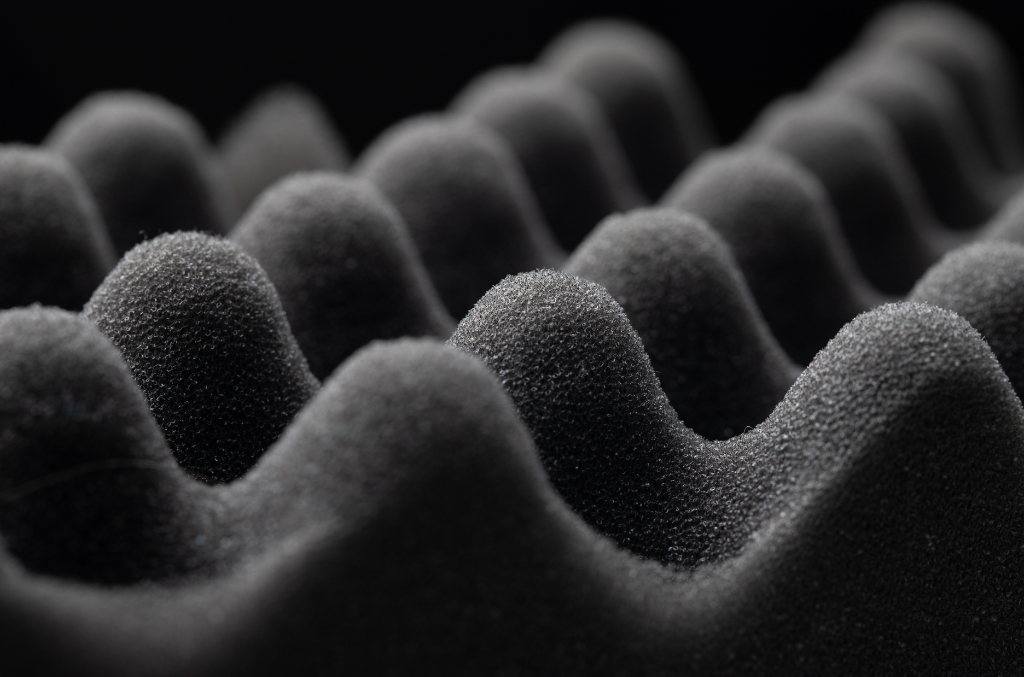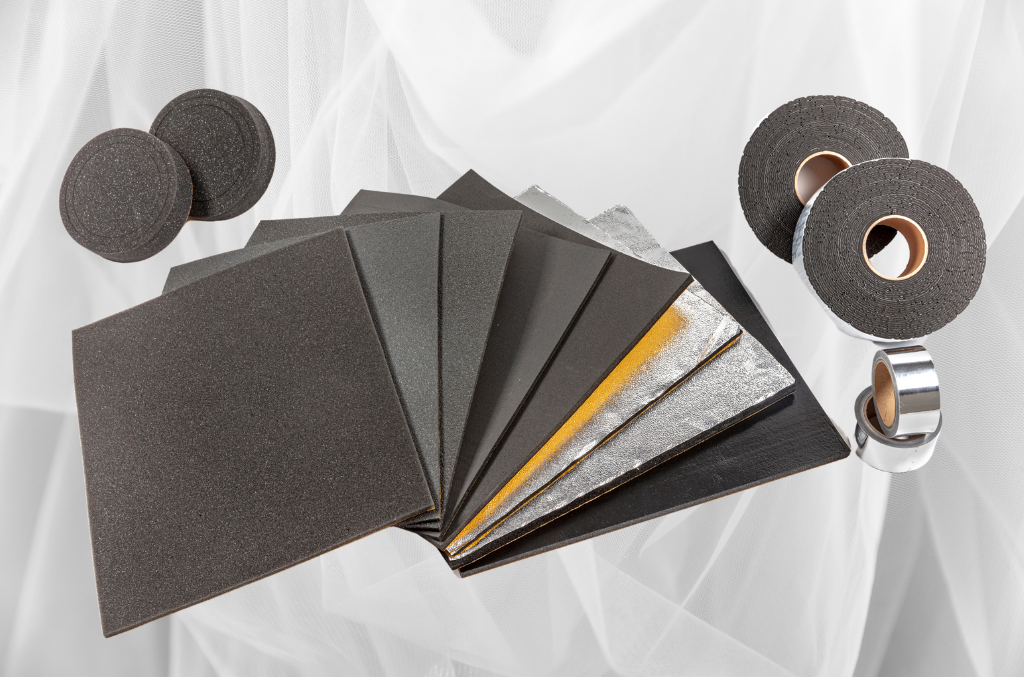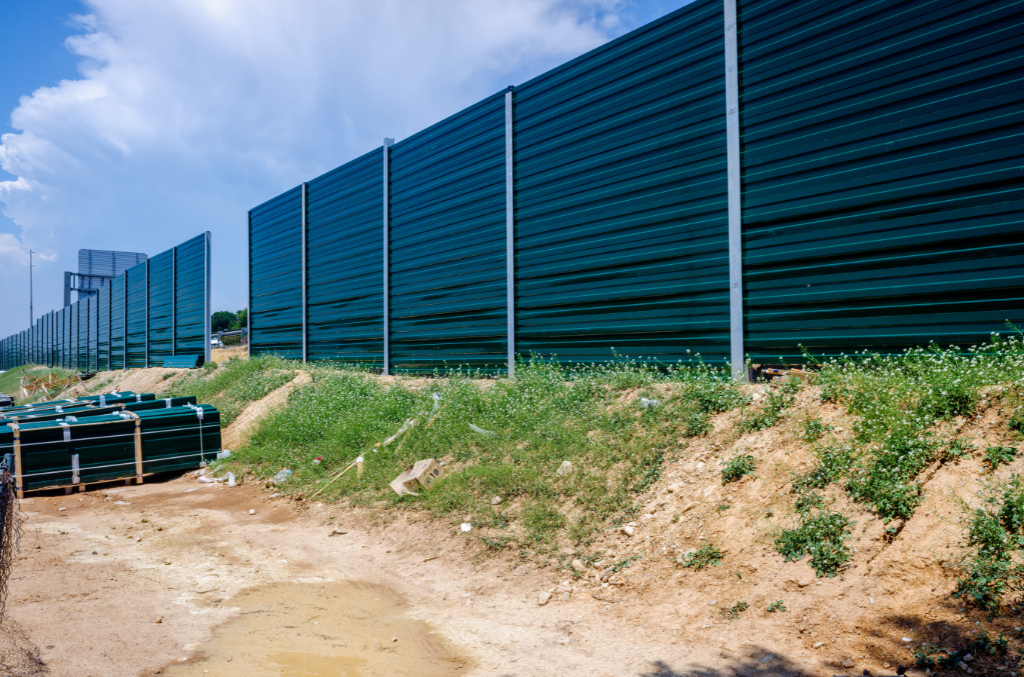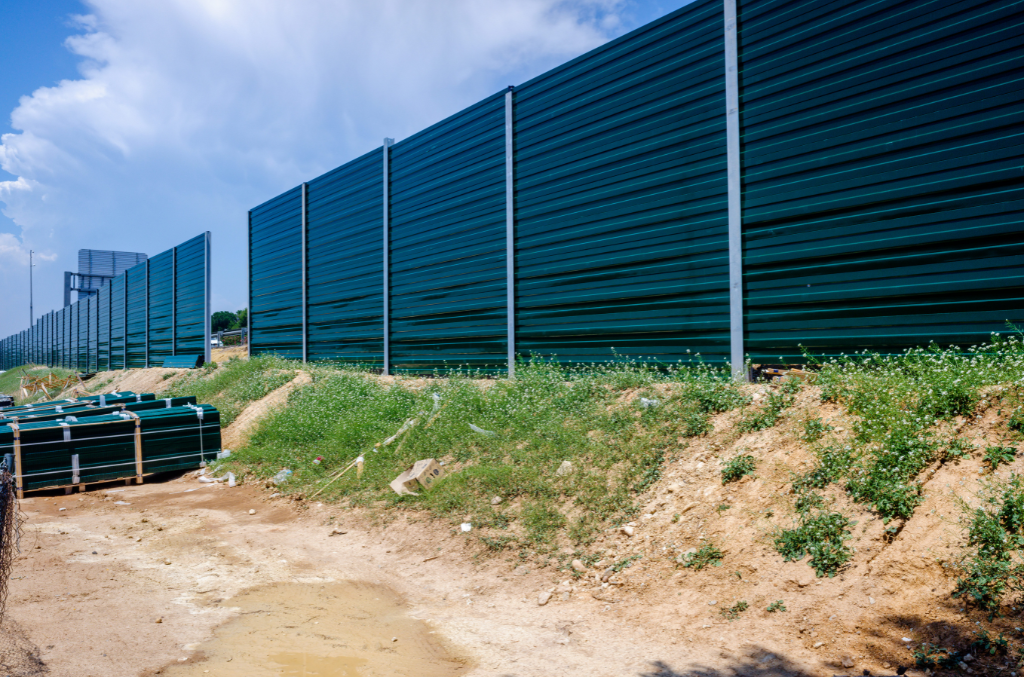Sound Proofing Products
A Comprehensive Guide: Unraveling the Mystery of Sound Proofing Products
In today’s fast-paced, industrialized world, noise pollution has emerged as a significant concern. Whether it’s the constant hum of machinery in a factory, the lively chatter in an educational institution, or the hustle and bustle in a healthcare facility, excessive noise can prove to be a hindrance in various environments. This is where the importance of effective sound proofing comes into play.
In This Article
The Role and Importance of Sound Proofing in Various Environments
Sound proofing plays a vital role in creating peaceful and productive environments. By reducing noise levels, it aids in enhancing focus, productivity, and overall comfort. In manufacturing and distribution sectors, it helps minimize noise pollution, thereby ensuring a safer and more pleasant working atmosphere. In healthcare, it provides patients with the much-needed peace and privacy, while in education, it fosters a conducive learning environment. Even in building services, sound proofing proves to be a boon by enhancing comfort in both residential and commercial buildings.
Understanding the Need for Effective Sound Proofing Products
The need for effective sound proofing products stems from the desire to control and contain noise within specific areas. These products are designed to absorb, deflect, or minimize the transmission of sound waves, thereby reducing the overall noise level. Whether it’s to comply with regulatory requirements, create a more comfortable atmosphere, or simply to ensure privacy, the need for sound proofing products is undeniable. In the sections to follow, we will delve deeper into various types of sound proofing products, their functioning, and how to choose the right ones for your specific needs.
Understanding Different Types of Sound Proofing Products
When it comes to sound proofing, there isn’t a one-size-fits-all solution. The right product for your needs would depend on a variety of factors, including the type of noise, its source, and the specific requirements of your space. Here, we’ll explore some of the most commonly used sound proofing products and their applications.
Acoustic Panels

Acoustic panels, also known as sound-absorbing panels, are designed to absorb sound waves and reduce echo and reverberation. They are often used in spaces like recording studios, theaters, and conference rooms where sound clarity is of utmost importance.
Sound Proofing Foam

Sound proofing foam, especially the convoluted or ‘egg-crate’ type, is another popular choice for controlling echoes. It’s lightweight, easy to install, and works well for high-frequency sounds. However, it’s not as effective against low-frequency noises, making it less suitable for spaces like music studios where bass sounds are prevalent.
Sound Proofing Insulation

Sound proofing insulation is typically installed in the walls, ceilings, and floors during construction or renovation. It’s made from dense materials like mineral wool or fiberglass that can effectively block sound transmission between rooms.
Resilient Channels
Resilient channels are a type of metal framing used in walls and ceilings to reduce sound transmission. They work by creating a break in the path of the sound waves, helping to ‘decouple’ the surfaces and prevent the vibration from transferring.
Noise Barriers

Noise barriers or sound barriers are physical obstructions designed to block sound waves. They’re commonly used outdoors to reduce noise from highways, construction sites, and other loud environments.
Vibration Control Devices
Vibration control devices, such as damping pads and isolation mounts, work by reducing the vibration that can cause sound. They’re often used in machinery and equipment to minimize operational noise.
Each of these products has its strengths and is best suited for certain types of noise and environments. Understanding their characteristics and functionality can help you make an informed decision about the most suitable sound proofing solution for your needs.
The Science Behind Sound Proofing Products
Understanding the science behind sound proofing can help you make more effective decisions regarding which products to use. Essentially, sound proofing works by manipulating the properties of sound waves using four main principles: absorption, damping, decoupling, and mass.
The Principles of Sound Proofing: Absorption, Damping, Decoupling, and Mass
-
Absorption – This involves the conversion of sound energy into heat energy. Absorbent materials like acoustic panels and sound proofing foam are designed to take in the sound waves, reducing their intensity and subsequently, the noise.
-
Damping – Damping is the process of dissipating vibrational energy before it can be transferred as sound. Damping materials transform this vibrational energy into low-level heat, effectively reducing the sound.
-
Decoupling – Decoupling involves separating two surfaces to prevent the transmission of sound waves. This is achieved using resilient channels or isolation mounts that break the path of sound waves, thereby reducing the noise.
-
Mass – The principle of mass is simple – the more massive or denser a material, the harder it is for sound to pass through it. This is why materials like sound proofing insulation, made from dense mineral wool or fiberglass, are effective at sound proofing.
How Different Sound Proofing Products Work – An Overview
Different sound proofing products work based on one or more of these principles. For instance, acoustic panels and sound proofing foam primarily work on the principle of absorption, soaking in the sound energy and reducing its intensity. On the other hand, sound proofing insulation and noise barriers rely on their mass to block sound transmission. Resilient channels and vibration control devices employ the principle of decoupling to break the path of sound waves.
By understanding these principles and how different products work, you can make informed decisions regarding the best sound proofing solutions for your specific needs. In the next sections, we’ll explore the various applications of these products in different industries and provide tips for their selection, usage, and maintenance.
Industry Applications of Sound Proofing Products
Sound proofing products find a wide range of applications across different industries. Let’s delve into how these products are utilized in various sectors to mitigate noise pollution and create a more conducive environment.
Manufacturing and Distribution: Reducing Noise Pollution in Factories and Warehouses
In manufacturing and distribution sectors, machinery and equipment often generate high levels of noise. Sound proofing products like noise barriers, sound proofing insulation, and vibration control devices are used to minimize this noise, creating a safer and more comfortable work environment. By reducing noise pollution, these products also aid in compliance with health and safety regulations.
Healthcare: Ensuring Peace and Privacy in Hospitals and Clinics
In healthcare facilities, maintaining a peaceful environment is crucial for patient recovery. Sound proofing products help to minimize noise from medical equipment, foot traffic, and other sources. Acoustic panels and sound proofing foam are commonly used in these settings to absorb noise and reduce echo, ensuring privacy and tranquility for patients.
Education: Creating Conducive Learning Environments in Schools and Colleges
Educational institutions benefit greatly from sound proofing. It helps to create a conducive learning environment by minimizing distractions from outside noise. Sound proofing insulation and acoustic panels are often installed in classrooms, libraries, and lecture halls to ensure a quieter and more focused learning space.
Building Services: Enhancing Comfort in Residential and Commercial Buildings
In the building services sector, sound proofing is essential for enhancing comfort and privacy in both residential and commercial buildings. It is used to minimize noise transmission between rooms and from outside sources. Sound proofing insulation, resilient channels, and acoustic panels are commonly used in this industry to ensure a peaceful and quiet indoor environment.
In conclusion, sound proofing products play a vital role across various industries, aiding in noise reduction, enhancing comfort, and ensuring compliance with noise regulations. The key to effective sound proofing lies in understanding your specific needs and choosing the right products accordingly.
Tips for Choosing the Right Sound Proofing Products
Choosing the right sound proofing products can be a daunting task, given the plethora of options available in the market. Here are some tips to guide you in making an informed decision.
Identifying Your Specific Sound Proofing Needs
The first step in choosing the right sound proofing product is to identify your specific needs. Determine the source and type of noise you are dealing with, the level of sound reduction required, and the specific areas that need sound proofing. For instance, if you are dealing with high-frequency noises, sound proofing foam might be a suitable option. On the other hand, for blocking noise transmission between rooms, sound proofing insulation or resilient channels might be more effective.
Understanding the Different Sound Proofing Product Options
Understanding the different sound proofing products and how they work can help you choose the right solution. As discussed earlier, different products work based on the principles of absorption, damping, decoupling, and mass. Choose a product that best aligns with your sound proofing needs.
Considering the Cost-Effectiveness and Efficiency of Different Products
While choosing a sound proofing product, consider its cost-effectiveness and efficiency. Look for products that offer the best balance between cost and performance. Also, consider the longevity and durability of the product. Remember, cheaper options might not always be the most cost-effective in the long run, especially if they require frequent replacement or maintenance.
In conclusion, the key to choosing the right sound proofing products lies in understanding your specific needs, exploring the options available, and considering their cost-effectiveness and efficiency. A well-informed decision can lead to effective sound proofing and a significant improvement in your environment’s comfort and productivity.
Proper Usage and Maintenance of Sound Proofing Products
Once you have chosen the right sound proofing products, it’s important to ensure that they are properly installed and maintained for optimal performance. Here are some tips to guide you.
Installation Tips for Maximizing Effectiveness of Sound Proofing Products
Proper installation is crucial for the effectiveness of sound proofing products. For instance, when installing acoustic panels or sound proofing foam, ensure they cover the entire surface area for maximum sound absorption. When using sound proofing insulation or resilient channels, they should be installed during the construction or renovation stage for best results. Always follow the manufacturer’s instructions or hire a professional for installation to ensure optimal performance.
Regular Maintenance Practices to Sustain Sound Proofing Efficiency
Regular maintenance of sound proofing products can help sustain their efficiency over time. Keep the products clean and free from dust or dirt that could hamper their sound absorbing properties. Inspect them regularly for any signs of wear or damage and replace them as needed. For products like sound proofing insulation or resilient channels, professional inspection may be required to ensure they are still performing effectively.
Remember, while sound proofing products can significantly reduce noise levels, they may not completely eliminate all sounds. However, with proper usage and maintenance, they can create a substantial improvement in the comfort and productivity of your environment.
In the next section, we’ll delve into the regulatory aspects of sound proofing products, helping you understand the legal requirements and standards in the industry.
Regulatory Aspects of Sound Proofing Products
Understanding the regulatory aspects of sound proofing products is crucial for compliance and ensuring a safe, comfortable environment. Here, we’ll explore the legal requirements for noise levels and the certifications and standards for sound proofing products.
Understanding the Legal Requirements for Noise Levels in Different Industries
Different industries have specific legal requirements for noise levels to ensure a safe and healthy work environment. For instance, in the manufacturing and distribution sector, the Occupational Safety and Health Administration (OSHA) in the U.S. sets limits on permissible noise exposure levels. Similarly, in healthcare and education sectors, there are regulations to ensure a peaceful and conducive environment. It’s important to understand these legal requirements when planning your sound proofing strategy.
Exploring Certifications and Standards for Sound Proofing Products
When choosing sound proofing products, look for certifications and standards that validate their effectiveness and safety. For instance, products may be certified for their noise reduction coefficient (NRC), a measure of their sound absorbing capacity. They may also meet standards for fire safety, environmental impact, and other aspects. Certifications and standards not only ensure the product’s quality and safety but also its compliance with legal requirements.
In conclusion, understanding the regulatory aspects of sound proofing products is crucial for compliance and ensuring a safe and comfortable environment. Always consider these aspects when choosing and implementing sound proofing solutions.
In the next section, we’ll introduce some top brands in the sound proofing industry and compare their offerings to help you make an informed choice.
Different Brands of Sound Proofing Products
The market is filled with numerous brands offering a variety of sound proofing products, each with its unique features and benefits. Let’s introduce some of the top brands in the sound proofing industry and compare their offerings.
Introducing Top Brands in the Sound Proofing Industry
-
Auralex Acoustics – Known for their high-quality acoustic panels and sound proofing foam, Auralex Acoustics is a go-to choice for many professionals. Their products are renowned for their superior sound absorption capabilities and durability.
-
Roxul – Roxul offers a wide range of sound proofing insulation products made from stone wool. These products stand out for their excellent sound blocking properties, fire resistance, and environmental friendliness.
-
Kinetics Noise Control – Specializing in vibration control devices and noise barriers, Kinetics Noise Control is a leading brand in the industrial sound proofing market. Their products are recognized for their effectiveness and innovative design.
-
QuietRock – QuietRock is a popular brand for sound proofing drywall. Their products, designed with patented technologies, offer superior sound reduction and are easy to install.
Comparing the Pros and Cons of Different Sound Proofing Brands
Each of these brands has its strengths and weaknesses. For instance, while Auralex Acoustics offers excellent sound absorption, their products might not be as effective for blocking noise transmission. On the other hand, Roxul’s insulation products are great for sound blocking but may require professional installation.
When choosing a brand, consider your specific sound proofing needs, budget, and the product’s performance, durability, and ease of installation. It’s also a good idea to check customer reviews and ratings to get a better idea of the product’s effectiveness and reliability.
In the next section, we’ll wrap up our comprehensive guide to sound proofing products, re-emphasizing their importance and encouraging informed decision-making in their selection.
Final Thoughts
In our fast-paced, noise-filled world, sound proofing products play a vital role in creating peaceful, productive environments. Whether in manufacturing, healthcare, education, or building services, these products help reduce noise pollution, enhance comfort, and ensure regulatory compliance.
Choosing the right sound proofing products requires understanding your specific needs, exploring the different options available, and considering their cost-effectiveness and efficiency. Install them properly and maintain them regularly for optimal performance.
Remember, different products work based on the principles of sound proofing – absorption, damping, decoupling, and mass. Understanding these principles and how different products work can guide you in making informed decisions.
There are various brands in the market, each offering unique sound proofing solutions. Consider your specific needs, the product’s performance, durability, ease of installation, and customer reviews when choosing a brand.
Finally, be aware of the regulatory aspects of sound proofing products. Understand the legal requirements for noise levels in your industry and look for products that meet the necessary certifications and standards.
Through this comprehensive guide, we hope to have unraveled the mystery of sound proofing products for you. Here’s to making informed decisions and creating quieter, more peaceful environments!
Frequently Asked Questions (FAQs)
At IP Products, we offer a wide range of Sound Proofing Products to meet your needs. Browse our collection today and find the perfect Sound Proofing Products for your job. We are dedicated to quality, customer satisfaction, and fast shipping.

